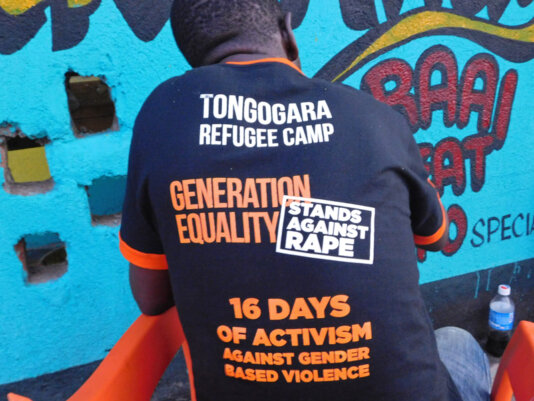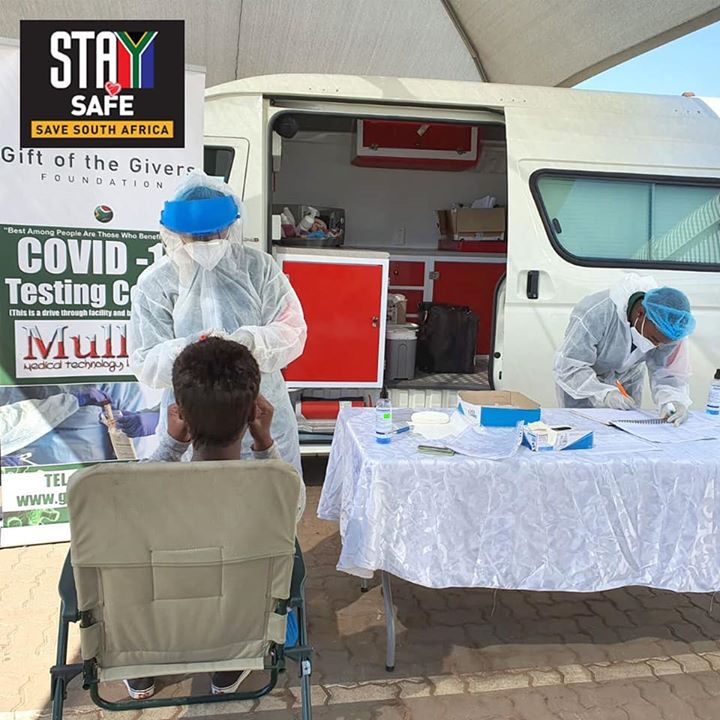- About
- Topics
- Picks
- Audio
- Story
- In-Depth
- Opinion
- News
- Donate
-
Signup for our newsletterOur Editors' Best Picks.Send
Read, Debate: Engage.
| May 09, 2022 | |
|---|---|
| topic: | Refugees and Asylum |
| tags: | #Zimbabwe, #Democratic Republic of Congo, #refugees, #UNHCR |
| located: | Zimbabwe, Democratic Republic of the Congo |
| by: | Cyril Zenda |
Some refugees and human rights groups in Zimbabwe are accusing the government of the southern African nation of deporting scores of refugees and asylum seekers from the Democratic Republic of Congo (DRC) back to their strife-torn country after accusing them of various crimes.
Reports reveal that nearly 80 Congolese nationals living at Tongogara refugee camp were last year rounded up by Zimbabwe’s security forces after they were accused of violently looting some food rations at the camp. The detainees were transferred to the capital, Harare, where upon being screened ten were released and about 70 were forcibly deported. Of these, the DRC government rejected 15 deportees for unclear reasons, resulting in them being returned to Harare, where their fate remains unknown.
"In August [last year] the government removed approximately 80 refugees accused of looting a food supply warehouse from Tongogara Refugee Camp and placed them in detention in Harare," the United States embassy in Harare noted in its 2021 Human Rights Report on Zimbabwe. "The government forcibly returned approximately 70 of these refugees to the DRC in violation of international law, according to an international organisation."
An investigation by FairPlanet revealed that these deportees were part of a group of more than 100 Congolese nationals who, in August last year, were intercepted in Bulawayo in the south-western part of the country after having travelled more than 800 km from Tongogara Camp in an attempt to flee to Botswana, citing ill-treatment by the Zimbabwean authorities.
At that time, Leonard Kwete, another Congolese living in Zimbabwe, told the media that the refugees and asylum seekers wanted to seek better opportunities outside Zimbabwe, after attempts to formalise their stay in the country had been rejected.
"They are refugees who had been in Zimbabwe for some years and their status was rejected. According to what they were saying, they were told in meetings that ‘everyone whose status was rejected has to leave the country because Zimbabwe doesn’t want you anymore and have to prepare or find your own means to leave’. So some of them were telling me, they asked for gate passes and were denied with officials saying, 'no, the same way you came here, is the same way you can use to leave'."
Kwete said that Zimbabwean officials then started denying the refugees food, medical treatment and other basic needs, resulting in them deciding to leave the country.
Sources at Tongogara Camp told FairPlanet that following their arrest and forcible return to the camp, the authorities continued to deny these foreigners food and other essentials, leading to a violent confrontation that culminated in some members of the group helping themselves to food items from the camp’s food warehouse. This is the formal charge that resulted in the refugees’ deportations.
However, some sources indicate that the refugees were targeted for deportation for - among other things - being vocal about the widespread corruption at the camp, with some of the refugees alleging that some retail outlets. including in Harare, run on stocks that are traceable to refugee supplies, something that infuriated those that were being denied food rations. "The alleged looting of the camp food warehouse was just used as an excuse to remove those viewed as trouble-makers because their real 'crime' was 'seeing too much'."
In most African countries, hosting refugees presents lucrative opportunities for corrupt government officials and some political elites to divert the funds, provisions and other resources meant to help displaced communities to their own back pockets. In the case of Zimbabwe, there have been countless reports of resources mobilised by the international community to help the victims of Cyclone Idai floods and in the fight against COVID-19 being wantonly looted by officialdom.
The alleged ill treatment and resultant deportation by the Zimbabwean authorities infringed on the refugees and asylum seekers’ rights to life, freedom and security of person, dignity and equality. Zimbabwe could also have failed to fulfil its international law obligations towards refugees, including the international law principle of non-refoulement. The principle guarantees that “no one should be re- turned to a country where they would face torture, cruel, inhuman or degrading treatment or punishment and other irreparable harm.”
“The fact that some of them have in the past tried to go to Botswana, instead of going back to the DRC, means they don’t consider their home country to be safe for them, so by forcibly sending them back there, this was certainly a violation of international humanitarian law,” a source told FairPlanet on condition of anonymity. The source added that there is a real possibility that the authorities in Kinshasa gladly accepted only those refugees who they may have wanted to interrogate on suspected crimes and rejected those who they had nothing against, meaning that the safety of those who were successfully deported cannot be guaranteed.
Sonia Gonzalez, associate relations officer at the United Nations High Commissioner for Refugees (UNHCR) office in Zimbabwe, declined to comment when FairPlanet sought clarification from the global refugees body. "We kindly request that you get in touch with the Government of Zimbabwe about this topic," Gonzalez said in a written response to FairPlanet.
Zimbabwe’s Public Service, Labour and Social Welfare minister, Paul Mavima - under whose purview refugee affairs fall - downplayed allegations of ill treatment of the refugees.
"This is an old story involving people, some of whom did not have refugee status in Zimbabwe. I have a Cabinet meeting today. Will give you nitty gritty answers before the end of day today," Mavima wrote FairPlanet.
However, the minister later reneged on his promise to give detailed responses to questions from FairPlanet, remaining unavailable even more than a week later.
Zimbabwe is home to around 22,000 refugees from about half-a dozen African countries, 15,000 of whom live inside Tongogara Camp, some 420 km southeast of Harare.
Most of the refugees would prefer local resettlement to repatriation; but as Zimbabwe has no resettlement policy, these refugees (and even their children who were born in the country) remain outsiders, even after living in the country for decades.
In 2020, Tongogara Refugee Camp administrator Johanne Mhlanga told visiting Parliamentarians that funds were being sought to deport over 800 asylum seekers from DRC, Rwanda, Burundi and other countries that he claimed were now posing a "security risk."
Photo by Marie Cacace/Oxfam
By copying the embed code below, you agree to adhere to our republishing guidelines.


